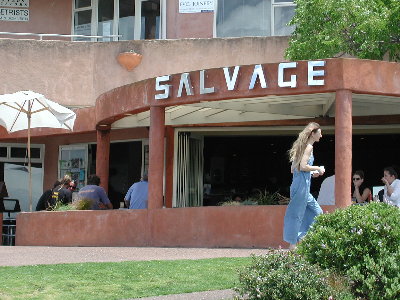
They speak English here. That was one big reason we chose New Zealand for the longest leg of our journey. Having settled before in places where English is not a first or even second language, we favored the chance to exercise literacy, converse completely, and minimize sign language.
It was a smart decision; we feel more connected and less dumb. But dialects are thick here, from the Scottish brogue of South-Island Kiwis to ex-Brits that can sound like Cockneys or the Queen. And then there are the Aussies and Maoris and Asians and Islanders. Still, we stand out. Ours is American-English with peculiar lingo. So conversational obstacles are commonplace.
For example, on my second day here I ordered lunch at Salvage, a trendy cafeteria hangout. The conversation went something like this.
ME: Good morning.
HE: G’day, mate.
ME: I see there’s “kuh-MOO-ra” in this; what’s that?
HE: Excuse me?
ME: Can you tell me what “kuh-MOO-ra” is?
HE: Don’t think so. Don’t believe we have any of that.
ME: Well, the sign here says there’s “kuh-MOO-ra” in this.
HE: Oh! Righty-oh. That’s “KOO-muh-ruh,” mate. A local sweet “po-TAH-to.”
ME: OK, great! And what’s that it’s in?
HE: That’s a “slauce.”
ME: A “slauce?” What’s a “slauce?”
HE: It’s like a big, square quiche that we cut into “slauces.”
ME: Oh, sure. I’ll have a “slauce,” please. And the sign says it’s got “bacon” in it, but we’d call that “ham.”
HE: “Homm?” Hmmm. Fancy a “bah-ROON-uh” with that. Our local “BEE-ya.”
ME: Yes, please. So THAT’s how it’s pronounced! Just a small.
HE: Only got one “saze.” That’s “ite” dollars.
ME: Wow. About $3.20 at home. The beer alone would cost that much! Here.
HE: Would it, then. But that’s only a “FOI-vuh.”
ME: Oh, sorry. Here’s a ten. Keep it.
HE: No worries. (handing back $2 coin)
ME: No, this is for you. (pushing coin back at him)
HE: Ah! Good on ya, mate! Ta!
Tags: